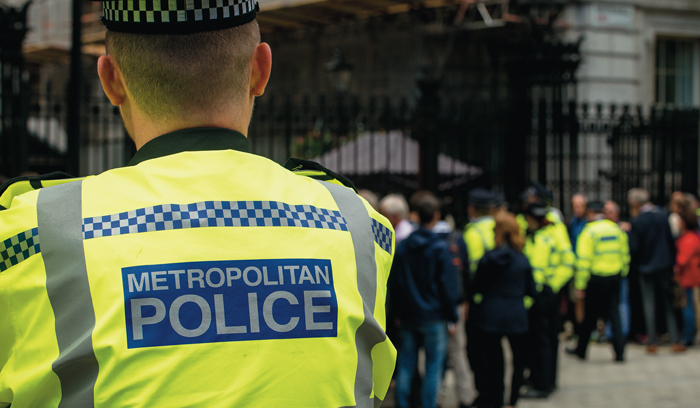MPS publishes new charter shaping future of stop and search
The Metropolitan Police Service (MPS) has published a new stop and search charter which will shape the future of how this tactic is used in London.
The charter, which was co-produced with communities, is the product of a year-and-a-half of engagement with more than 8,500 Londoners of all ages, ethnicities and backgrounds.
It is the first time a set of formal commitments on how stop and search is carried out has been agreed to and published in this way.
Commissioner Sir Mark Rowley said: “Stop and search is a critical policing tool. Done well, it stops those intent on causing death, injury and fear in our communities. It takes dangerous weapons and drugs off our streets and in doing so, it saves lives.
“Done badly, it has the potential to burn through trust with those we are here to protect, undermining our founding principle of ‘policing by consent’ and damaging our efforts to keep the public safe.
“The charter is not about doing less stop and search. It is about doing it better by improving the quality of encounters, informed by the views of the public it is intended to protect.
“Many of our officers already use their powers in this area very well. They show empathy, they de-escalate and they understand the impact that being stopped and searched can have. They do all that while still recovering dangerous weapons and seizing drugs.
“The charter commits us to supporting all our officers, through improved training, more supervision and better access to technology, so they can meet that high standard their colleagues are setting.
“It also gives the community a greater role in the oversight of how, when and where stop and search is used which we hope will help to build trust in a policing tactic that, so often, has been at the root of mistrust.”
Over the past four years, 17,500 weapons were seized as a result of stop and search, including at least 3,500 in 2024. Polling shows that up to 68 per cent of Londoners, including young Londoners, support its use.
“But that support varies depending on who is asked,” the MPS said.
“Many black Londoners, for example, have told us that stop and search creates tensions between their communities and the police. However, people living in these communities, which are often among those that suffer most from serious violence and drug-related crime, also tell us that they want us to do more to keep them safe.”
The creation of a stop and search charter was recommended by Baroness Casey in her 2023 review into the culture and standards of the MPS.
The extensive engagement that led to its creation and publication included events held in all 32 London boroughs, three events at New Scotland Yard and open public online sessions.
The themes that emerged from those engagement events were tested against a wider audience of 8,500 Londoners in a series of surveys.
The final writing of the charter was led by 80 young people aged between 16 and 23 who were invited to New Scotland Yard to interpret feedback and bring the document together. The charter uses as much of their language and phrasing as possible, in particular where the ‘community expectation’ under each commitment is set out.
Sir Mark added:“If we are to take the fight to those intent on causing serious violence, fear and intimidation across London then stop and search must form part of that effort. If we allow its contentious nature and the concerns associated with it to force us into doing less of it, then only the criminals win.
“This charter is particularly powerful because it has been written with communities. We’re immensely grateful to all who stepped forward to work with us. We are committed to this change and to further rebuilding trust by continuing the conversations that have made it possible so far.”
Among its commitments, the charter includes:
- A focus on the quality of stop and search encounters to make sure they are conducted with professionalism, showing basic forms of respect.
- Improved training for officers so that they better understand their local community, especially those with protected characteristics.
- Improved supervision for officers with regular and random reviews of stop and searches.
- Improved handling of complaints to prevent internal bias by ensuring the community are involved with decision making in the complaints process and provide accessible statistics that clearly show how different people are affected.
- Better use of technology to make data and processes more accessible, make feedback easier and explore the possible use of artificial intelligence to identify trends.
- Enhanced independent governance and scrutiny.
- Community involvement to regularly discuss when and where stop and search is being used. .
- Achieving a better public understanding of stop and search by educating all Londoners of all ages by way of different communication streams on their rights, the correct process, the reason behind each stop and search and raise awareness in general on the power.


